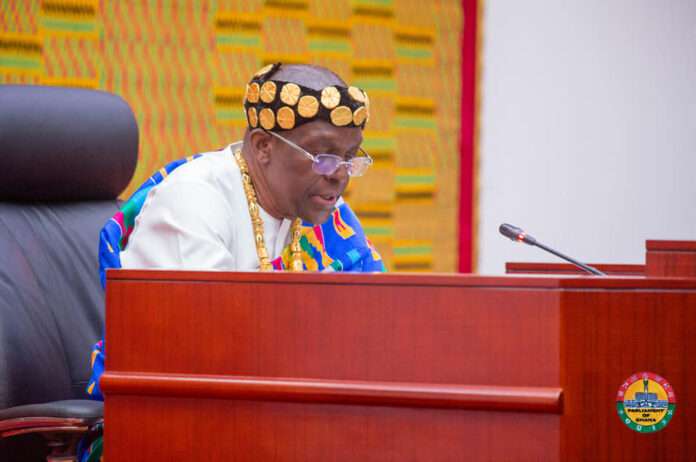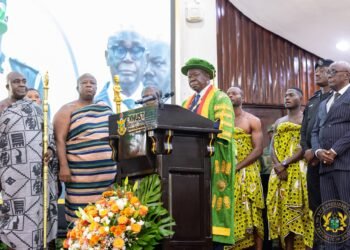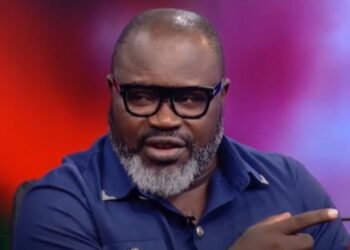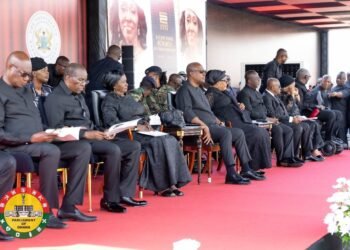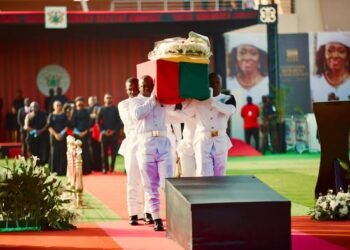Given the current impasse between the Legislative and the Executive arms of government, the need for unity and cooperation between the two arms of government for the better performance of the business of government is being emphasized now more so than ever.
The Executive Director of the African Center for Parliamentary Affairs (ACEPA), Dr. Rasheed Draman noted that the current gridlock between the Presidency and the Parliament is a signal of the deteriorating relationship between the two arms of government.
He emphasized the need for the minority and majority caucuses in parliament to build consensus which will then translate into a healthy relationship between the Executive and Parliament. He stressed that unity is essential because, unlike other parliaments of the Fourth Republic, the Speaker of Parliament and the President are from different political parties.
“We have a completely different situation where unlike what we have seen before, the Speaker of Parliament can stand up to a President. I mean if they are from the same party, they will have a conversation and if there are any issues to iron out, these are ironed out”.
Dr. Rasheed Draman
Furthermore, Dr. Draman indicated that the Speaker of Parliament would have reacted differently if the NDC was the government-forming party in this situation.
He however asserted that, given Esq. Alban Bagbin’s personality, the Speaker’s reaction would be similar if an NDC government treated Parliament in the same manner and refused to see reason. “You recall when his party was in power, there were occasions when he disagreed with the President and he made it public” he stated.
Moreover, he indicated that rather than being guided by the core principles of the Constitution in the administration of the country, governments of the Fourth Republic engage in “cherry-picking”, hence the varying position of the President in the issues of the E-levy and the anti-LGBTQ+ bills, which are quite similar.
He stated that leaders must be bold in their convictions and indicate when they agree or disagree on an issue, as being clear with their position on issues ensures that the constitutional processes regarding issues are not hindered. “That’s the only way we can build democracy” he added.
President’s Constitutional Rights
Dr. Rasheed Draman also clarified that the President has the constitutional right to refuse to assent to the anti-LGBTQ bill, indicating that the options granted to the President by the Constitution are more favorable than his (the President’s) decision to leave Parliament in limbo.
“He has done it before; the constitution gives him the power to say why [he will not assent to the bill]. This [the President’s action] gives credence to what many are saying, ‘Is it because of the pressure from the international community?’… I mean if it is, maybe the President should tell us so we don’t live in a situation like we are not strictly following the constitution”.
Dr. Rasheed Draman
Furthermore, he noted that with Ghana’s reputation regarding its practice of democracy on the African continent, it is worrying that the country’s parliament has never passed a private member bill. He indicated that the phenomenon of private member bills is common in other parliaments across the continent.
Dr. Draman also indicated that it is regrettable that parliament seems to be divided concerning the President’s refusal to assent to private member bills. He opined that the power of Parliament is being undermined by the actions of the President which sets a bad precedence for the future.
“Get another President after the next election…if there’s is a bill that is not convenient to the President or the party, they could ride on all these and have the bill ousted” Dr. Draman noted.
He opined that Ghana practices a politics of ‘tit for tat’, arguing that it is likely that either the NDC or the NPP in the next Parliament will refer to this occurrence to justify an action when the need arises depending on which of the parties occupies the majority or the minority caucus.
Conclusively, while it is commendable for Parliament to assert its autonomy, unnecessary politicking in Parliament concerning this issue could also damage Ghana’s democracy. Both arms of government should start building a consensus to prevent further deterioration of the country’s hard-earned democracy.
READ ALSO: Director Famous Goes Hard On Ghanaian Celebrities

